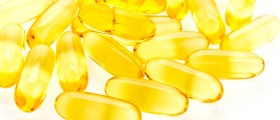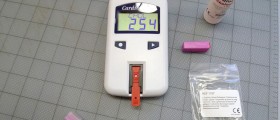Information on Lecithin
Lecithin is one of the most important dietary supplements everywhere around the globe. It can be found in both plants and animals, and it is actually a lipid material which can commonly be found in the myelin sheaths and the cell membranes. The best food sources of lecithin include peanuts, yeast, legumes, wheat germ, egg yolks and soybeans, among others. Numerous scientific studies have shown that lecithin is very important for numerous different types of bodily functions. Even though lecithin is very popular as a dietary supplement, not that many people are aware of the fact that it may also be associated with certain types of side effects as well. Lecithin is actually a fatty substance which contains phospholipids, carbohydrates, triglycerides, fatty acids and a compound called phosphatidylcholine. It is very efficient in enhancing the process of digestion and it may come in very handy when it comes to fighting off the free radicals and reducing the amount and severity of damage they cause inside the human body. Certain scientific sources claim that lecithin is very efficient in reducing the amounts of bad cholesterol in the blood and increasing the amounts of good cholesterol in the blood. Some other sources claim that it may also be of great help for all those who suffer from certain degenerative types of medical conditions such as Alzheimer’s disease and dementia. Lecithin is commonly used in food industry as an emulsifier, but besides that it is also used frequently in cosmetics and paint industry. Lecithin is usually derived from soybeans and it is usually available in the form of granules, capsules and powder. The FDA considers lecithin to be generally safe for use.
Side Effects of Lecithin
Most people do not experience any side effects triggered by the use of lecithin. Lecithin side effects are usually associated with the usage and consumption in excessive amounts. The most common side effects of lecithin in its supplemental form include increased salivation, various different types of allergic reactions, fainting, dizziness, low blood pressure, sudden weight loss, sudden weight gain, fishy body odor, bad breath, abdominal bloating, painful sensations in the abdomen, diarrhea, vomiting and nausea. Lecithin injections may also sometimes trigger burning sensations, redness andswelling. This is why one should never use lecithin in its supplemental form before consulting a physician. Another important fact is that there is not standard dosage for lecithin in any form.

















Your thoughts on this
Loading...